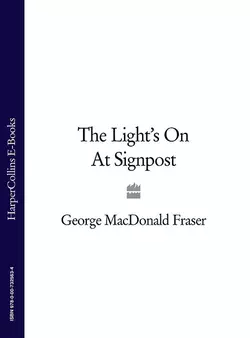The Light’s On At Signpost

George Fraser
Тип: электронная книга
Жанр: Биографии и мемуары
Язык: на английском языке
Стоимость: 853.37 ₽
Статус: В продаже
Издательство: HarperCollins
Дата публикации: 16.04.2024
Отзывы: Пока нет Добавить отзыв
О книге: From the author of the ever-popular Flashman novels, a collection of film-world reminiscences and trenchant thoughts on Cool Britannia, New Labour and other abominations.In between writing Flashman novels, George MacDonald Fraser spent thirty years as an «incurably star struck» screenwriter, working with the likes of Steve McQueen, Arnold Schwarzenegger, Cubby Broccoli, Burt Lancaster, Federico Fellini and Oliver Reed. Now he shares his recollections of those encounters, providing a fascinating glimpse behind the scenes.Far from starry-eyed where Tony Blair & Co are concerned, he looks back also to the Britain of his youth and castigates those responsible for its decline to «a Third World country … misruled by a typical Third World government, corrupt, incompetent and undemocratic».Controversial, witty and revealing – or «curmudgeonly», «reactionary», «undiluted spleen», according to the critics – The Light′s on at Signpost has struck a chord with a great section of the public. Perhaps, as one reader suggests, it should be «hidden beneath the floorboards, before the Politically-Correct Thought Police come hammering at the door, demanding to confiscate any copies».